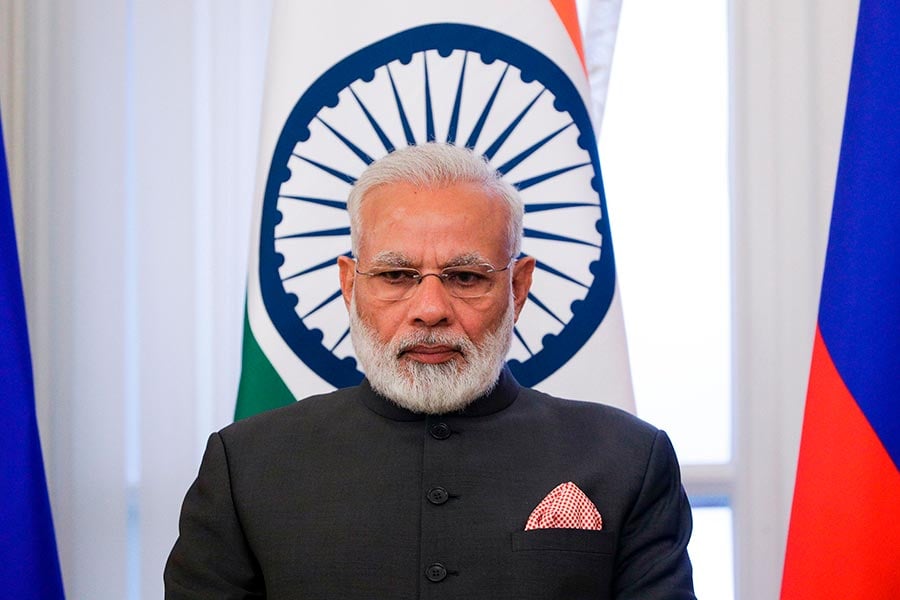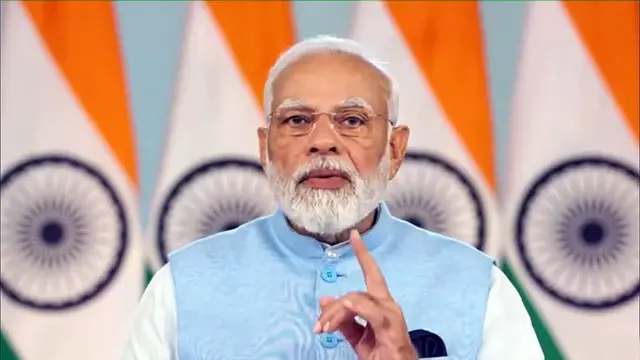By Shristi Kafle
Amid the changing global scenario, South Africa is all set to host the 15th BRICS Summit in Johannesburg in August. The summit of BRICS, an acronym for Brazil, Russia, India, China and South Africa, is being watched globally with much attention and anticipation.
At a time of heightened global tensions, particularly due to Russia-Ukraine conflict, the summit of emerging economies is seen as a significant event that could voice to change the dynamics of world power. Each country has its own interest; however, they stand together to face the contemporary world realities and challenges.
As per the experts, this time, the potential focus could be on two things - adopting a resolution on creating a BRICS currency, alternative to the US dollar, and admitting new members like Saudi Arabia, Iran, and United Arab Emirates in the bloc.
Last month, the foreign ministers of BRICS bloc held a meeting in Cape Town and jointly agreed on the need of a stronger mechanism for building a multipolar world order.
This comes as the group aims to provide global leadership in a world dominated by geopolitical tension, inequality and insecurity.
For Asia, this platform holds more importance as the two Asian giants China and India, with similar large populations and growing economies and trade, stand together. Amid the west vs east scenarios, the unity of Asian powers solidifies the grouping and makes it more relevant to boost the economies.
Last month, Indian External Affairs Minister Dr S Jaishankar attended the Friends of BRICS Foreign Ministers’ meeting and shared that BRICS is no longer an ‘alternative’ but an established feature of the global landscape, adding that “the message of reform that BRICS embodies must permeate the world of multilateralism.”

His opinion was BRICS is not only an expression of multipolarity but of the many and diverse ways of meeting international challenges. “Its focus is on building a fairer, inclusive and open international architecture with sustainable development at its core.” India is of view that creating resilient and reliable supply chains are central to ensure that no one is left behind. It is expected that the coming summit will make deliberations around it.
Indian Prime Minister Narendra Modi has decided to attend the BRICS Summit. New Delhi has been advocating for the BRICS spirit—to promote mutual development, enhance trade and investment, and foster a more equitable global order.
The experts in Delhi opine that considering the geopolitical contest in Asia and Europe, New Delhi may not be too optimistic. Though BRICS was fundamental to preventing a unipolar world, many claim that China seems to be taking the center stage in recent years, which Delhi would also convey in some form.
According to Dr Rishi Gupta, Research Fellow at Asia Society Policy Institute, New Delhi, this time, expanding the BRICS might be a close issue to watch for as in the last declaration, expansion was categorically mentioned. To be noted, last year many countries had shown interest to join the group.
“In the 2023 Summit in South Africa, members might finalize a framework for admitting new members. India will be keen on what the guiding principles, standards, criteria and procedures of an expanded BRICS bloc would look like. Additionally, amid the ongoing Ukraine conflict, India will be closely monitoring energy security matters,” Gupta opined.
Meanwhile, India holds the G20 Presidency, where all BRICS countries are members, thus it also allows India to address the challenges faced by the Global South. Delhi is busy as the 18th Heads of State and Government Summit of the G20 will take place in September under the theme Vasudhaiva Kutumbakam, referring to "One Earth, One Family, One Future.”
India has been stressing in working closely together to combat terrorism and resolve security issues. “India is seeking more collaboration in intelligence sharing, capacity building, and combined counterterrorism operations due to becoming a victim of cross-border terrorism. Unfortunately, China’s role in protecting Pakistan from breeding, training and financing terrorism, is a challenge for India,” Gupta explained the scenario of recent years.”
As BRICS is mostly about economic cooperation, including trade and investment within the group, India has advocated for lowering trade barriers and improving market access for its goods and services. It is expected that at the BRICS Summit, India would want to emphasize measures to build a more balanced and inclusive global trade policy, as per the Indian expert.
In addition, Delhi has forecasted that India will hold bilateral engagements on the sidelines of the BRICS, focusing on areas like trade and investment, strategic and defense cooperation, cultural exchanges, people-to-people contacts, and technology partnerships.
“A handshake between Prime Minister Modi and Chinese President Xi Jinping will be a sight to look for considering an ongoing border conflict between India and China,” Gupta remarked.
Sharing intelligence, joint counterterrorism operations, and actions to break up extremist financing networks should all be discussed, suggests the Indian researcher, adding that “India should stress the significance of changing international institutions to consider emerging economies’ interests and aspirations.”
This becomes relevant as the Asian country advocates that the world is multipolar and rebalancing with the changing geopolitical landscape. As the Indian foreign minister said, “old ways cannot address new situations”, it becomes important for the BRICS family to collaborate in new dimensions, broaden policy issues and pursue wide initiatives to deepen cooperation.
(ASIA PACIFIC DAILY)
 简体中文
简体中文

